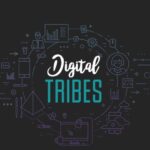As environmental awareness grows, eco-directories, like EcoHubMap stand out as vital resources, bringing individuals and businesses together toward sustainability. Founded by Noa Shtang, this innovative platform connects users with eco-friendly initiatives, nurturing a community focused on environmental change and inspiring a new generation to live more sustainably.
Noa has extensive experience in web development and building digital solutions for businesses and organizations. Having worked as a web developer in product companies, she has a deep understanding of building web platforms. She has honed her skills in building web applications, solving complex issues, and innovating.
As a founder of EcoHubMap, Noa is committed to fostering a sustainable future. EcoHubMap serves as a central hub, featuring the world’s most extensive directory of environmental organizations and eco-friendly businesses. Noa has shared the inspiration behind EcoHubMap and her perspectives on fostering a sustainable environment.
Tell us a little bit about EcoHubMap history. How did it start?
We started our EcoHuMap journey and successfully launched our platform in 2021. Initially, there was only a directory of eco-conscious NGOs worldwide. The idea came to my mind when, while communicating with eco-activists, I realized there is no one platform where you can find eco-NGOs in different countries, divided by fields. This made the work of journalists, eco-activists, and bloggers more complicated when they wanted to learn about other NGOs that face similar problems in different countries. So, in the beginning, it was only a small directory of the most famous eco-NGOs.
After publishing it, NGOs contacted us and asked us to edit or add information about them. So, we quickly added this functionality to the website. Now, NGOs can create their pages or edit existing sites. But there was a surprise: businesses were creating their pages as well. They didn’t fit the existing categories but still wanted to be listed. Because of this demand, an eco-business section was added.
In November 2022, we added environmental hot spots. The idea was to publish information about the most pressing environmental challenges facing our planet today, update them regularly, and show the connection between these spots and organizations working on improving the situation. News agencies, academic researchers, and professional ecological websites widely utilize this resource. Our research team ensures data accuracy through continuous updates and moderation. We also provide a dedicated form where users can suggest new hotspots.
But we don’t want just to point out problems; we want to show the existing solutions! This is why the green spots were added in 2023. This section showcases areas making a significant impact through their use of renewable energy, conservation efforts, and recycling programs.
Our database has seen remarkable growth! We currently have more than 5000 eco-NGOs in the directory across 199 countries, around 12,700 eco-businesses in 192 countries, 1,180 eco-media groups in 188 countries, and 397 government organizations in 169 countries.
How do you choose the direction of development for your platform?
We follow Eric Ries’s Lean Startup methodology, prioritizing rapid experimentation and feedback-driven development. Our approach includes closely monitoring key customer metrics like churn rate, lifetime value, and engagement rate. We also believe in releasing smaller, incremental versions of products to quickly gauge user reactions and adjust our strategy based on real-time customer insights. This helps us stay agile, reduce risk, and ensure our platform evolves according to user needs.
Tell us more about the Hotspots and green spots sections on EcoHubMap
The Hotspots section of EcoHubMap highlights the most urgent environmental challenges our planet is currently facing. Each hotspot entry provides in-depth information, including issue descriptions, timelines, potential solutions, related companies, and videos.
First, the concept of a “biodiversity hotspot” was proposed in 1988 by Norman Myers, British environmentalist. He wrote about it two works in The Environmentalist. His work has shaped the understanding and protection of the most critical areas for life on Earth.
Our directory lists almost 350 hotspots, spanning 24 categories—rising sea levels, toxic waste, deforestation, poaching, etc. Confronting these issues can be overwhelming, but knowledge is the first step towards action. We aim to inspire awareness and mobilize efforts to protect our planet’s health by highlighting these critical areas.
The Green Spots section highlights groundbreaking innovations and positive environmental progress worldwide. We showcase inspiring green technologies, sustainable practices, and eco-friendly products. Our platform has captured 60 eco-green spots worldwide, spread across different continents.
How does EcoHubMap ensure the quality of companies listed on its platform?
We want our directory to be a trustworthy resource for eco information. A company can create an account and a company page. Each company page goes through a moderation process after submission. The moderation process usually takes a few hours; if the company is eco-friendly, its page is published. Businesses listed in our directory typically explain why they are considered eco-friendly. Certification from reputable organizations can also boost a company’s score during moderation. Their products, services, or initiatives must align closely with the green economy. We reject any requests from companies that do not meet environmental standards to ensure a high-quality search experience for our users.
Why is systematizing information crucial in the eco-industry, and how does EcoHubMap contribute to this effort?
Systematizing information is essential in the eco-industry because it gives consumers and organizations the knowledge they need to make informed decisions and take effective action. EcoHubMap is significant because it aggregates and organizes large amounts of data on environmental challenges, eco-friendly businesses, NGOs, and green technologies.
EcoHubMap is the central place, enabling users to access and navigate different sustainability information sources easily. The data is organized, well-structured, and user-friendly, which helps share knowledge, collaborate, and make decisions. We highly believe that this reduced friction of information leads to positive changes and speeds up the transition toward a sustainable future.
What are the challenges that you face as the leading eco directory?
One major challenge is ensuring data accuracy. The sustainability space constantly evolves, and maintaining a current and reliable database requires ongoing effort.
Another challenge is greenwashing. As sustainability continues to evoke interest, deceptive information concerning environmental practices may become available.
Keeping our users engaged and informed is also crucial. As knowledge of environmental issues grows, turning it into action becomes complex. We continually explore new ways to engage users.
Technological advances play a vital role. The rapidly changing digital space requires us to adopt new technologies to enhance user experience.
Like most young entrepreneurs, our biggest challenge is attracting talent because of a lack of capital and brand name recognition. Maintaining an appropriate wage scale is never easy, and searching for good talent that also fits the company’s values can be frustrating.
Despite these challenges, we remain committed to empowering people and organizations to take positive action for the planet.




